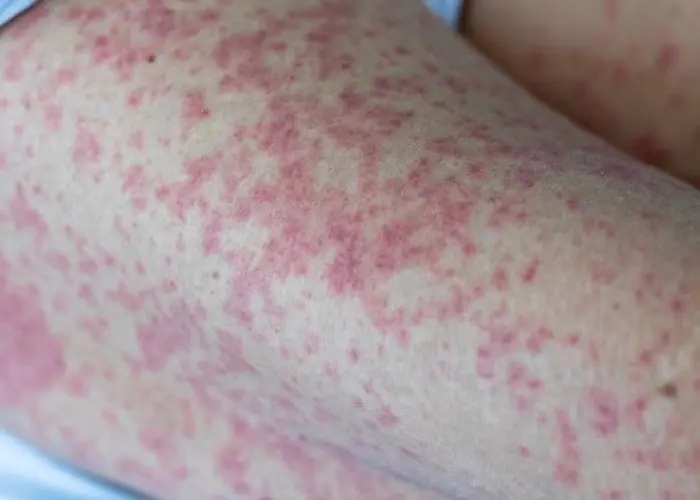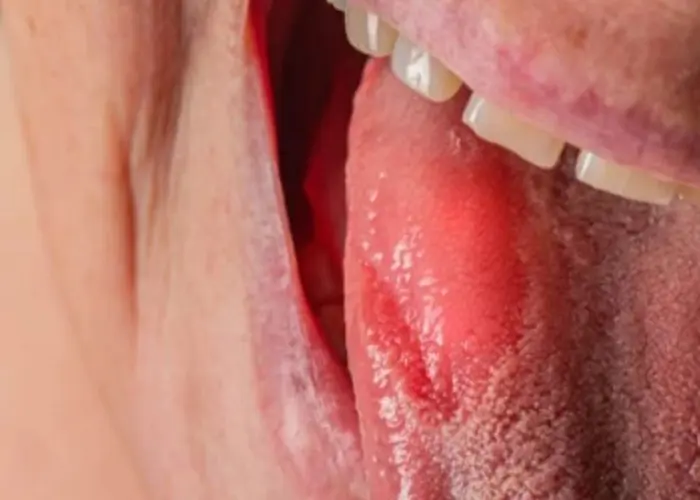 Welcome
Welcome
“May all be happy, may all be healed, may all be at peace and may no one ever suffer."
Schizophrenia

Schizophrenia is a mental health condition that affects how a person thinks, feels, and behaves. It is a chronic and severe disorder that typically develops in late adolescence or early adulthood, and affects men and women equally.
The symptoms of schizophrenia can be divided into three categories: positive symptoms, negative symptoms, and cognitive symptoms. Positive symptoms refer to the presence of abnormal experiences or behaviors, such as hallucinations (hearing or seeing things that are not there) and delusions (false beliefs that are not based in reality). Negative symptoms refer to the absence of normal experiences or behaviors, such as reduced emotions or motivation, and social withdrawal. Cognitive symptoms refer to difficulties with memory, attention, and decision-making.
The exact causes of schizophrenia are not fully understood, but it is thought to be caused by a combination of genetic, environmental, and brain chemistry factors. Risk factors for developing schizophrenia include a family history of the disorder, exposure to certain viruses or infections, and drug use during adolescence.
Diagnosis of schizophrenia is typically based on a comprehensive psychiatric evaluation, including a medical history, physical exam, and mental status examination. There are no specific laboratory tests for this disorder, but brain imaging studies such as MRI or CT scans may be performed to rule out other conditions.
Treatment for schizophrenia typically involves a combination of medications and psychotherapy. Antipsychotic medications are often used to treat positive symptoms such as hallucinations and delusions, while psychosocial interventions such as cognitive behavioral therapy and social skills training may help individuals manage negative and cognitive symptoms and improve their functioning in social and occupational settings.
With proper treatment and ongoing support, many people with schizophrenia are able to manage their symptoms and lead fulfilling lives. However, the condition can be chronic and may require long-term treatment and monitoring.
Research Papers
Disease Signs and Symptoms
- Confusion (Hallucinations)
- Mental disorder
- Trouble sleep (insomnia)
- Irritability
- Withdrawal from friends and family
- More likely to have visual hallucinations
- Schizophrenia
Disease Causes
Schizophrenia
It's not known what causes schizophrenia, but researchers believe that a combination of genetics, brain chemistry and environment contributes to development of the disorder.
Problems with certain naturally occurring brain chemicals, including neurotransmitters called dopamine and glutamate, may contribute to schizophrenia. Neuroimaging studies show differences in the brain structure and central nervous system of people with schizophrenia. While researchers aren't certain about the significance of these changes, they indicate that schizophrenia is a brain disease.
Disease Prevents
Schizophrenia
There's no sure way to prevent schizophrenia, but sticking with the treatment plan can help prevent relapses or worsening of symptoms. In addition, researchers hope that learning more about risk factors for schizophrenia may lead to earlier diagnosis and treatment.
Disease Treatments
Schizophrenia requires lifelong treatment, even when symptoms have subsided. Treatment with medications and psychosocial therapy can help manage the condition. In some cases, hospitalization may be needed.
A psychiatrist experienced in treating schizophrenia usually guides treatment. The treatment team also may include a psychologist, social worker, psychiatric nurse and possibly a case manager to coordinate care. The full-team approach may be available in clinics with expertise in schizophrenia treatment.
Medications
Medications are the cornerstone of schizophrenia treatment, and antipsychotic medications are the most commonly prescribed drugs. They're thought to control symptoms by affecting the brain neurotransmitter dopamine.
The goal of treatment with antipsychotic medications is to effectively manage signs and symptoms at the lowest possible dose. The psychiatrist may try different drugs, different doses or combinations over time to achieve the desired result. Other medications also may help, such as antidepressants or anti-anxiety drugs. It can take several weeks to notice an improvement in symptoms.
Because medications for schizophrenia can cause serious side effects, people with schizophrenia may be reluctant to take them. Willingness to cooperate with treatment may affect drug choice. For example, someone who is resistant to taking medication consistently may need to be given injections instead of taking a pill.
Ask your doctor about the benefits and side effects of any medication that's prescribed.
Second-generation antipsychotics
These newer, second-generation medications are generally preferred because they pose a lower risk of serious side effects than do first-generation antipsychotics. Second-generation antipsychotics include:
- Aripiprazole (Abilify)
- Asenapine (Saphris)
- Brexpiprazole (Rexulti)
- Cariprazine (Vraylar)
- Clozapine (Clozaril, Versacloz)
- Iloperidone (Fanapt)
- Lurasidone (Latuda)
- Olanzapine (Zyprexa)
- Paliperidone (Invega)
- Quetiapine (Seroquel)
- Risperidone (Risperdal)
- Ziprasidone (Geodon)
First-generation antipsychotics
These first-generation antipsychotics have frequent and potentially significant neurological side effects, including the possibility of developing a movement disorder (tardive dyskinesia) that may or may not be reversible. First-generation antipsychotics include:
- Chlorpromazine
- Fluphenazine
- Haloperidol
- Perphenazine
These antipsychotics are often cheaper than second-generation antipsychotics, especially the generic versions, which can be an important consideration when long-term treatment is necessary.
Long-acting injectable antipsychotics
Some antipsychotics may be given as an intramuscular or subcutaneous injection. They are usually given every two to four weeks, depending on the medication. Ask your doctor about more information on injectable medications. This may be an option if someone has a preference for fewer pills and may help with adherence.
Common medications that are available as an injection include:
- Aripiprazole (Abilify Maintena, Aristada)
- Fluphenazine decanoate
- Haloperidol decanoate
- Paliperidone (Invega Sustenna, Invega Trinza)
- Risperidone (Risperdal Consta, Perseris)
Psychosocial interventions
Once psychosis recedes, in addition to continuing on medication, psychological and social (psychosocial) interventions are important. These may include:
- Individual therapy. Psychotherapy may help to normalize thought patterns. Also, learning to cope with stress and identify early warning signs of relapse can help people with schizophrenia manage their illness.
- Social skills training. This focuses on improving communication and social interactions and improving the ability to participate in daily activities.
- Family therapy. This provides support and education to families dealing with schizophrenia.
- Vocational rehabilitation and supported employment. This focuses on helping people with schizophrenia prepare for, find and keep jobs.
Most individuals with schizophrenia require some form of daily living support. Many communities have programs to help people with schizophrenia with jobs, housing, self-help groups and crisis situations. A case manager or someone on the treatment team can help find resources. With appropriate treatment, most people with schizophrenia can manage their illness.
Hospitalization
During crisis periods or times of severe symptoms, hospitalization may be necessary to ensure safety, proper nutrition, adequate sleep and basic hygiene.
Electroconvulsive therapy
For adults with schizophrenia who do not respond to drug therapy, electroconvulsive therapy (ECT) may be considered. ECT may be helpful for someone who also has depression.
Disease Diagnoses
Disease Allopathic Generics
-
Chlorpromazine Hydrochloride
Phenothiazine class of drugs are widely used. Notable among these drugs are chlorpromazine, thioridazine and trifluoropyrazine.
-
Trifluoperazine
Medicines containing trifluoroperazine to reduce anxiety, suspicion and anxiety.
1 pill 2/3 times a day. will continue
-
Thioridazine
Patients with severe or mild schizophrenia can be given medicines containing thioridazine for depression, stress, anxiety.
2 times a day and 2 pills at night. 1 pill (25mg) 3 times a day to reduce anxiety and stress. (Not more than 4 weeks.)
-
Olanzapine
Olanzapine is a drug associated with delusional beliefs and random thoughts.
1 pill daily.
-
Flupentixol
Depending on the patient's condition, 20mg-40mg 1 injection after 3 weeks or as soon as the patient is under control.
-
Procyclidine Hydrochloride
Medicines containing procyclidine to prevent tremors.
1 pill will run 2/3 times a day.
-
Haloperidol
Haloperidol in chronic schizophrenia, acute agitation, anxiety neurosis, tension states etc.
0.5mg-5mg 2/3 times a day. Gradually increase the dose up to 200 mg, then maintenance dose.
-
Vitamin B complex
Medicines containing vitamin B-complex.
1-4 3 times a day after meals.
-
Ferrous Sulfate
for blood 1 pill 1 time a day.
Disease Ayurvedic Generics
Disease Homeopathic Generics
Disease yoga
Schizophrenia and Learn More about Diseases

Hay fever

Angina

Complex regional pain syndrome

Drug allergy

Traveler's diarrhea

Croup

Metabolic syndrome

Burning mouth syndrome
schizophrenia, সিজোফ্রেনিয়া
To be happy, beautiful, healthy, wealthy, hale and long-lived stay with DM3S.
